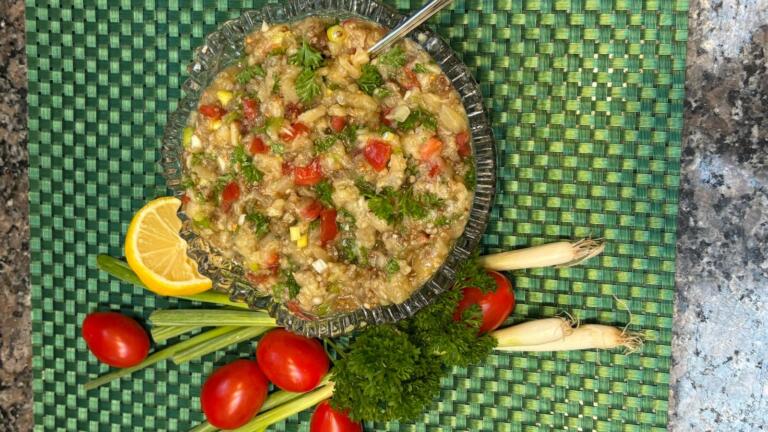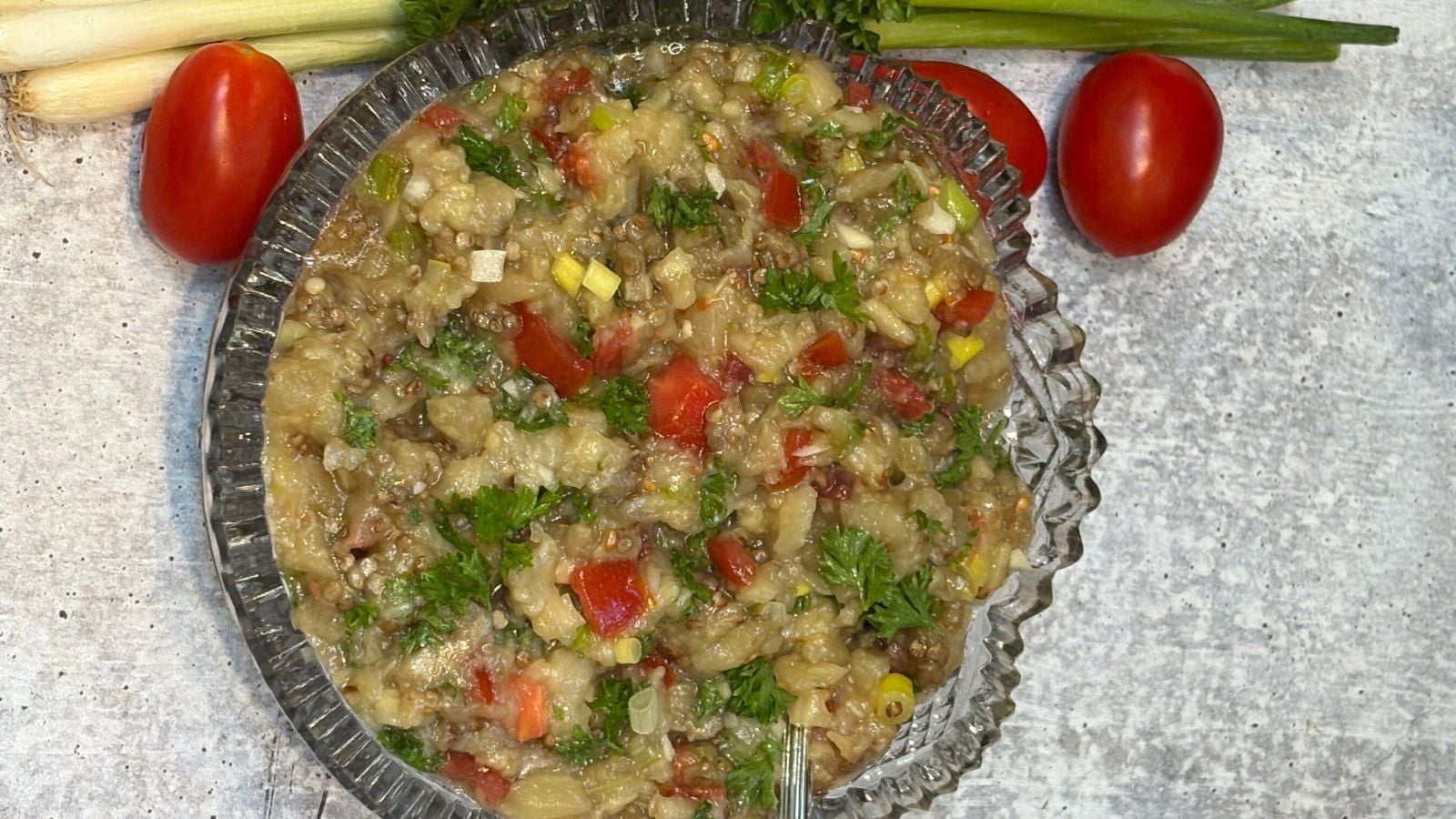Several years ago, when my husband Ed and I were in Istanbul, our guide took us to lunch so we could sample some Turkish specialties. It was a life-changing day.
I still remember the moment when the first dish came to our table. I can still feel my heart beating, feel the tears welling in my eyes, picture myself at age 7 or so, transported back to my grandma’s house. Before me was the Romanian eggplant salad she made every week when we visited, a dish I hadn’t tasted since she died, decades before.
I hated that dish when I was a kid. All the grandchildren did. We giggled at the color and the viscous, phlegm-like texture. We made faces and behaved the way children behave when they don’t like something. (Historically, disdain for eggplant runs much deeper than bitter flesh. Read more about the Jewish history of eggplant here.)
Here I was, faced with a dish I didn’t like and, while it brought back wonderful memories of my grandmother, it wasn’t something I was eager to try. I did, of course, and fell in love with what our guide called “patlijan”, which I had always known as “potlagela.”
The Nosher celebrates the traditions and recipes that have brought Jews together for centuries. Donate today to keep The Nosher's stories and recipes accessible to all.
I’ve been making it ever since, often, and always when the cousins come – because they love it now, too.
My grandma roasted her eggplant right on top of a gas burner; although that method gives the eggplant a fabulous smoky taste, I prefer the oven (it’s less messy!) but sometimes use my outdoor grill.
Roasting eggplant whole means you can’t salt and sweat the flesh, but because of the other ingredients, this salad is never bitter. If I can find Asian eggplants, which are lighter in color and/or striped, I use those because they tend to be sweeter.
Occasionally my grandmother would add chopped tomatoes and/or cut up roasted red peppers; she always added an onion, I often switch to scallions; she used soy bean oil, I prefer olive oil. It’s all good.
Potlagela is an ideal snack for outdoor summer eating. It’s perfect for a Rosh Hashanah nosh. It’s a good first bite after a Yom Kippur fast. It’s a nice New Year’s Eve nibble.
Note: Store potlagela in an airtight container in the refrigerator for up to a week.

Potlagela recipe
Potlagela is an ideal snack for outdoor summer eating.
- Total Time: 30 minutes
- Yield: Serves 4-6
Ingredients
- 1 large eggplant
- olive oil
- 1–2 medium scallions or one shallot or small onion, chopped
- 1 clove garlic, finely chopped
- 1 tomato, chopped (optional)
- ½ cup chopped roasted bell pepper (optional)
- 2 Tbsp olive oil
- 2 Tbsp lemon juice
- salt and freshly ground black pepper, to taste
- 2–3 Tbsp parsley, chopped
Instructions
- Preheat the oven to 425°F.
- Wash the surface of the eggplant, then wipe it dry. Coat the surface with a thin film of olive oil. Prick the skin in a few places with the tines of a fork. Place the eggplant on a baking sheet and roast for about 25 minutes, turning the eggplant once or twice during the cooking. (You can also cook the eggplant atop a gas burner or on an outdoor grill.)
- Remove the eggplant from the oven. When the eggplant is cool enough to handle, discard the skin and stem, and place the flesh in a bowl. Mash the eggplant with the back of a fork.
- Add the scallion, garlic, optional tomato and/or bell pepper and olive oil, and mix the ingredients to distribute them evenly. Add the lemon juice and mix again. Season to taste with salt and pepper; sprinkle with some parsley, mix until combined.
Notes
Store potlagela in an airtight container in the refrigerator for up to a week.
- Prep Time: 5 minutes
- Cook Time: 25 minutes
- Category: Appetizer
- Method: Roasting
- Cuisine: Mizrahi




Leave a Comment